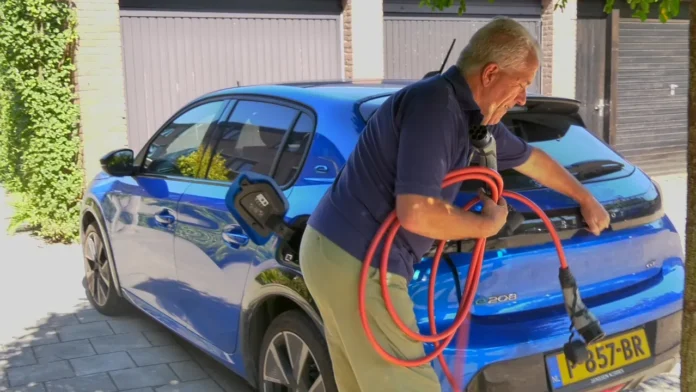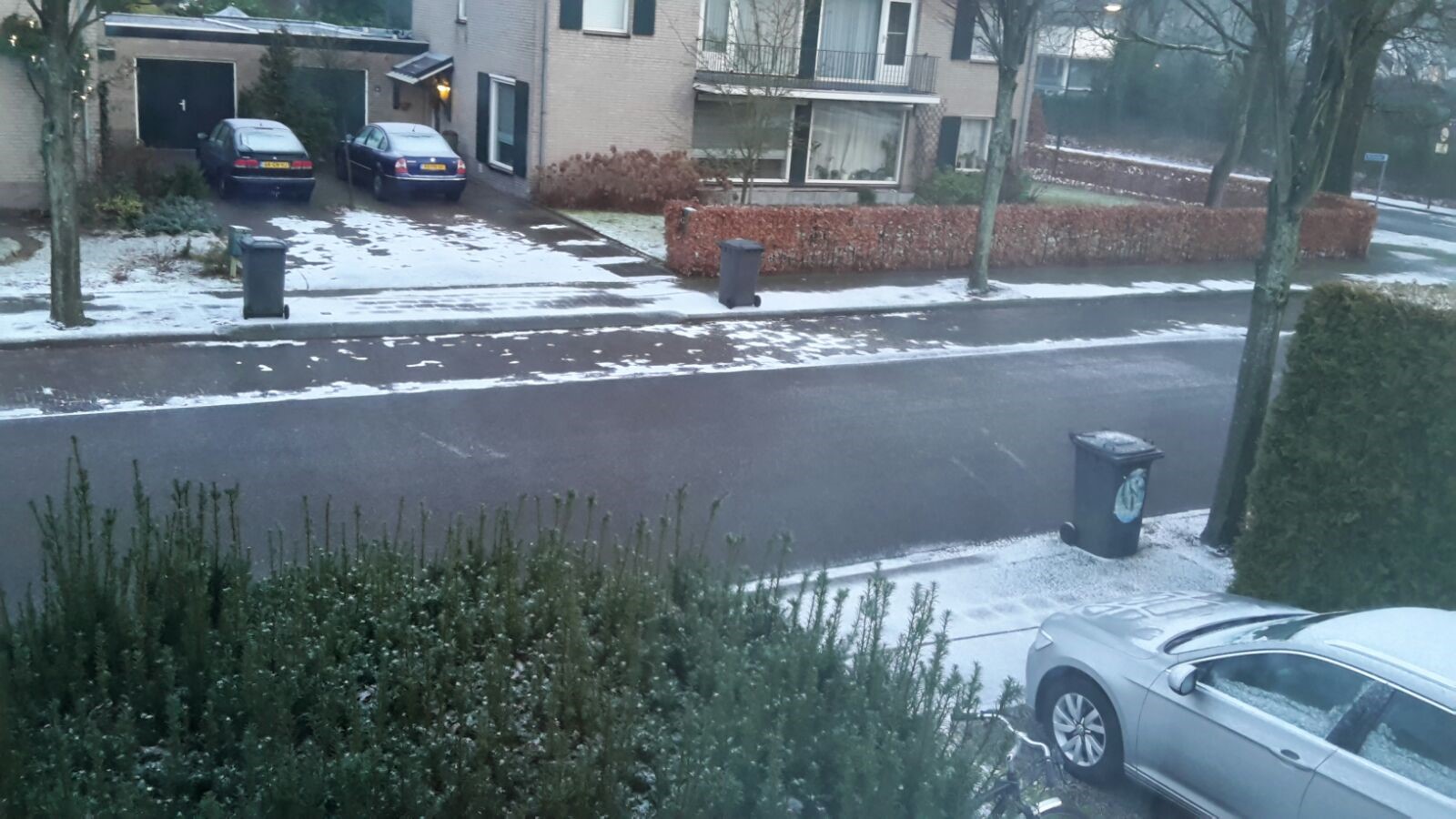You see it regularly on the streets of Eindhoven: an electric cable pulled from the house across the sidewalk to an electric car. But not everyone knows that this is forbidden. Despite the struggle of Jan Vellekoop from Woensel, this will not change for the time being either.
Fine for charging the electric car
Last year, Jan Vellekoop from the Woensel neighbourhood ‘t Hool received a penalty payment of five hundred euros from the municipality of Eindhoven, because he charges his electric car via a cable lying across the sidewalk. According to the municipality, this is unsafe in a public space. Despite the many suggestions he made, such as a special sidewalk tile with a gutter or covering the cable with a cable bridge or cable barrier, Eindhoven sticks to the rules: a charging cable over the sidewalk remains prohibited. Since then, Jan obediently goes to the charging station, even if it costs him more time and energy.
Vellekoop’s frustration was picked up by D66. The party made a proposal to allow charging tiles as a trial for at least fifty Eindhoven households that also have solar panels. But this proposal did not receive sufficient support from the city council.
Less safe
According to a spokesman for the municipality, there are several arguments for prohibiting it. “First of all, a private charging cable makes the public space less safe and accessible for elderly people or people with wheelchairs. In addition, the municipality cannot monitor the safety of the connection, which creates additional danger. Charging cables also make it more difficult to keep public spaces clean.” The municipality also points to the fact that for many residents it is not possible to use a private connection at all, for example because they live in a flat. Therefore, it is important to have a good network of public charging stations.
Extented private connections
Aderperson Rik Thijs (energy and greening) recently emphasised that allowing “extended private connections” (or VPAs) carries another risk: namely, that people will start claiming the public parking space in front of their homes to charge their cars. And that is not the intention; public spaces should be available for use by everyone. The trial with charging cables for 50 Eindhoven households that also have solar panels, as D66 proposed, is nonsensical, according to Thijs. “Because if such a trial is successful, you have to introduce it for the whole city.” And there is not enough room for that, according to Thijs.
A tour of Studio040 shows that by no means all Eindhoven residents are aware of this ban. “A 500 euro penalty for charging your electric car? I didn’t know that. Djeez…” says an anonymous resident surprised. Yet he has no intention of changing his habit. “I haven’t heard anything from the municipality about this myself. Until then, then, I just hope it goes well.
Incomprehensible
For Jan, it feels incomprehensible. “I am trying to do my part to ensure a sustainable future, but all I get is opposition,” he says. What makes the situation even stranger is that he is not the only one in the neighbourhood who charges his car this way. “There are at least six other residents who also put their cable across the sidewalk, but I’m the only one who gets called on it. My neighbour disagrees with my green vision and therefore keeps calling enforcement when I put the cable down.”
Source: Studio040.nl
Transalted by: Anitha Sevugan
















